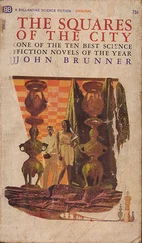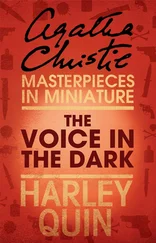O'Henry - The Voice of the City
Здесь есть возможность читать онлайн «O'Henry - The Voice of the City» весь текст электронной книги совершенно бесплатно (целиком полную версию без сокращений). В некоторых случаях можно слушать аудио, скачать через торрент в формате fb2 и присутствует краткое содержание. Жанр: Классическая проза, Юмористическая проза, на английском языке. Описание произведения, (предисловие) а так же отзывы посетителей доступны на портале библиотеки ЛибКат.
- Название:The Voice of the City
- Автор:
- Жанр:
- Год:неизвестен
- ISBN:нет данных
- Рейтинг книги:5 / 5. Голосов: 1
-
Избранное:Добавить в избранное
- Отзывы:
-
Ваша оценка:
- 100
- 1
- 2
- 3
- 4
- 5
The Voice of the City: краткое содержание, описание и аннотация
Предлагаем к чтению аннотацию, описание, краткое содержание или предисловие (зависит от того, что написал сам автор книги «The Voice of the City»). Если вы не нашли необходимую информацию о книге — напишите в комментариях, мы постараемся отыскать её.
The Voice of the City — читать онлайн бесплатно полную книгу (весь текст) целиком
Ниже представлен текст книги, разбитый по страницам. Система сохранения места последней прочитанной страницы, позволяет с удобством читать онлайн бесплатно книгу «The Voice of the City», без необходимости каждый раз заново искать на чём Вы остановились. Поставьте закладку, и сможете в любой момент перейти на страницу, на которой закончили чтение.
Интервал:
Закладка:
The clamor of the central avenues drew him thitherward. He had half expected to see Cal coming down the street in his shirt-sleeves, with a jug and a whip in his hand, just as he would have seen him in Frankfort or Laurel City. But an hour went by and Cal did not appear. Perhaps he was waiting in ambush, to shoot him from a door or a window. Sam kept a sharp eye on doors and windows for a while.
About noon the city tired of playing with its mouse and suddenly squeezed him with its straight lines.
Sam Folwell stood where two great, rectangular arteries of the city cross. He looked four ways, and saw the world burled from its orbit and reduced by spirit level and tape to an edged and cornered plane. All life moved on tracks, in grooves, according to system, within boundaries, by rote. The root of life was the cube root; the measure of existence was square measure. People streamed by in straight rows; the horrible din and crash stupefied him.
Sam leaned against the sharp corner of a stone building. Those faces passed him by thousands, and none of them were turned toward him. A sudden foolish fear that he had died and was a spirit, and that they could not see him, seized him. And then the city smote him with loneliness.
A fat man dropped out of the stream and stood a few feet distant, waiting for his car. Sam crept to his side and shouted above the tumult into his ear:
"The Rankinses' hogs weighed more'n ourn a whole passel, but the mast in thar neighborhood was a fine chance better than what it was down -"
The fat man moved away unostentatiously, and bought roasted chestnuts to cover his alarm.
Sam felt the need of a drop of mountain dew. Across the street men passed in and out through swinging doors. Brief glimpses could be had of a glistening bar and its bedeckings. The feudist crossed and essayed to enter. Again had Art eliminated the familiar circle. Sam's hand found no door-knob - it slid, in vain, over a rectangular brass plate and polished oak with nothing even so large as a pin's head upon which his fingers might close. Abashed, reddened, heartbroken, he walked away from the bootless door and sat upon a step. A locust club tickled him in the ribs.
"Take a walk for yourself," said the policeman. You've been loafing around here long enough."
At the next corner a shrill whistle sounded in Sam's ear. He wheeled around and saw a black-browed villain scowling at him over peanuts heaped on a steaming machine. He started across the street. An immense engine, running without mules, with the voice of a bull and the smell of a smoky lamp, whizzed past, grazing his knee. A cab-driver bumped him with a hub and explained to him that kind words were invented to be used on other occasions. A motorman clanged his bell wildly and, for once in his life, corroborated a cab-driver. A large lady in a changeable silk waist dug an elbow into his back, and a newsy pensively pelted him with banana rinds, murmuring, "I hates to do it -but if anybody seen me let it pass!"
Cal Harkness, his day's work over and his express wagon stabled, turned the sharp edge of the building that, by the cheek of architects, is modelled upon a safety razor. Out of the mass of hurrying people his eye picked up, three yards away, the surviving bloody and implacable foe of his kith and kin.
He stopped short and wavered for a moment, being unarmed and sharply surprised. But the keen mountaineer's eye of Sam Folwell had picked him out.
There was a sudden spring, a ripple in the stream of passersby and the sound of Sam's voice crying:
"Howdy, Cal! I'm durned glad to see ye."
And in the angles of Broadway, Fifth Avenue and Twenty-third Street the Cumberland feudists shook hands.
ROSES, RUSES AND ROMANCE
Ravenel -Ravenel, the traveller, artist and poet, threw his magazine to the floor. Sammy Brown, broker's clerk, who sat by the window, jumped.
"What is it, Ravvy?" he asked. "The critics been hammering your stock down?"
"Romance is dead," said Ravenel, lightly. When Ravenel spoke lightly be was generally serious. He picked up the magazine and fluttered its leaves.
"Even a Philistine, like you, Sammy," said Ravenel, seriously (a tone that insured him to be speaking lightly), "ought to understand. Now, here is a magazine that once printed Poe and Lowell and Whitman and Bret Harte and Du Maurier and Lanier and -well, that gives you the idea. The current number has this literary feast to set before you: an article on the stokers and coal bunkers of battleships, an expose of the methods employed in making liverwurst, a continued story of a Standard Preferred International Baking Powder deal in Wall Street, a 'poem' on the bear that the President missed, another 'story' by a young woman who spent a week as a spy making overalls on the East Side, another 'fiction' story that reeks of the 'garage' and a certain make of automobile. Of course, the title contains the words 'Cupid' and 'Chauffeur' -an article on naval strategy, illustrated with cuts of the Spanish Armada, and the new Staten Island ferry-boats; another story of a political boss who won the love of a Fifth Avenue belle by blackening her eye and refusing to vote for an iniquitous ordinance (it doesn't say whether it was in the Street-Cleaning Department or Congress), and nineteen pages by the editors bragging about the circulation. The whole thing, Sammy, is an obituary on Romance."
Sammy Brown sat comfortably in the leather armchair by the open window. His suit was a vehement brown with visible checks, beautifully matched in shade by the ends of four cigars that his vest pocket poorly concealed. Light tan were his shoes, gray his socks, sky-blue his apparent linen, snowy and high and adamantine his collar, against which a black butterfly had alighted and spread his wings. Sammy's face -least important -was round and pleasant and pinkish, and in his eyes you saw no haven for fleeing Romance.
That window of Ravenel's apartment opened upon an old garden full of ancient trees and shrubbery. The apartment-house towered above one side of it; a high brick wall fended it from the street; opposite Ravenel's window an old, old mansion stood, halfhidden in the shade of the summer foliage. The house was a castle besieged. The city howled and roared and shrieked and beat upon its double doors, and shook white, fluttering checks above the wall, offering terms of surrender. The gray dust settled upon the trees; the siege was pressed hotter, but the drawbridge was not lowered. No further will the language of chivalry serve. Inside lived an old gentleman who loved his home and did not wish to sell it. That is all the romance of the besieged castle.
Three or four times every week came Sammy Brown to Ravenel's apartment. He belonged to the poet's club, for the former Browns had been conspicuous, though Sammy bad been vulgarized by Business. He had no tears for departed Romance. The song of the ticker was the one that reached his heart, and when it came to matters equine and batting scores he was something of a pink edition. He loved to sit in the leather armchair by Ravenel's window. And Ravenel didn't mind particularly. Sammy seemed to enjoy his talk; and then the broker's clerk was such a perfect embodiment of modernity and the day's sordid practicality that Ravenel rather liked to use him as a scapegoat.
"I'll tell you what's the matter with you," said Sammy, with the shrewdness that business had taught him. "The magazine has turned down some of your poetry stunts. That's why you are sore at it."
"That would be a good guess in Wall Street or in a campaign for the presidency of a woman's club," said Ravenel, quietly. "Now, there is a poem - if you will allow me to call it that - of my own in this number of the magazine."
"Read it to me," said Sammy, watching a cloud of pipe-smoke be had just blown out the window.
Читать дальшеИнтервал:
Закладка:
Похожие книги на «The Voice of the City»
Представляем Вашему вниманию похожие книги на «The Voice of the City» списком для выбора. Мы отобрали схожую по названию и смыслу литературу в надежде предоставить читателям больше вариантов отыскать новые, интересные, ещё непрочитанные произведения.
Обсуждение, отзывы о книге «The Voice of the City» и просто собственные мнения читателей. Оставьте ваши комментарии, напишите, что Вы думаете о произведении, его смысле или главных героях. Укажите что конкретно понравилось, а что нет, и почему Вы так считаете.











